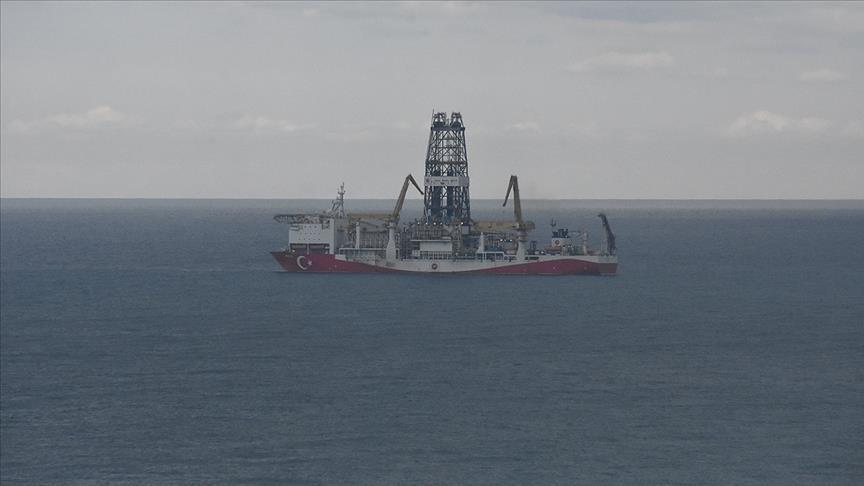
Turkey's gas discovery of 540 billion cubic meters (bcm) with a market value over $100 billion will be open for trading under the name ‘Black Sea Gas Contract’ in Turkey's future gas market which will launch on Oct. 1 in Istanbul, Mustafa Yılmaz, head of Turkey's Energy Market Regulatory Authority (EPDK) told Anadolu Agency on June 9.
President Recep Tayyip Erdoğan announced a new gas discovery of 135 bcm last week in the Amasra-1 well in the northern Sakarya Gas Field located offshore in the Black Sea.
This follows on from the biggest gas discovery in the history of the country last year with 405 bcm in the Tuna-1 well also located in the Sakarya Gas Field.
The cumulative 540 bcm of gas discoveries could significantly cut Turkey’s gas import dependence.
"In today's market prices, the value of the total gas discoveries is over $100 billion. Initially, 3 to 5 bcm of production per year is planned from the Black Sea by 2023 but this could increase up to 15-20 bcm annually, which would reduce Turkey's gas imports by 30% and its current account deficit as well," Yılmaz said.
One of the first step towards reaping awards from the gas discoveries will be in the establishment of a futures gas market under Turkey’s energy exchange, EXIST. According to Yılmaz, this exchange will ease risks for traders and market participants by offering more trade stability than the current spot gas market.
“Market participants will be able to trade under the name ‘Black Sea Gas Contract’ in the future gas market that will open on Oct. 1,” he said.
He added that diversified gas supplies from the Black Sea and the Trans Anatolian Natural Gas Pipeline and TurkStream pipelines will support Turkey’s aim of becoming a gas trading hub and positively impact gas prices in the country.
'Turkey will now become gas market playmaker'
Black Sea gas will strengthen Turkey's hand in gas contract negotiations, according to Yılmaz. This is timely, as around 30% of Turkey’s long-term and oil-indexed contracts will expire either this year or the next.
These include 6.6 bcm from Azerbaijan and 8 bcm from Russia. Turkey imports gas via pipelines mainly from Russia, Azerbaijan and Iran, and liquefied natural gas (LNG) from Algeria, Nigeria and the U.S. Turkey, as a gas import-dependent country, is conscious of reducing its import bill.
Yılmaz said that 2022 onwards would be a critical period for the Turkish gas market.
“We also paved the way for spot gas imports, which will have a direct impact on reducing Turkey's gas import costs," he said, adding that Turkey will be placed in the category of a gas market playmaker.
EPDK last year opened the way for spot pipeline gas imports under a new regulation to allow supplies under more affordable and flexible conditions.
The first capacity allocation through the electronic platform operated by EPDK was made in September and the first actual spot pipeline gas imports were made to
Turkey from the Malkoclar entry point on the border with Bulgaria.
Last year, the country’s gas consumption totaled 48.2 bcm, up by around 6.5% compared to the previous year. Turkey imported 48 bcm of its gas consumption, while domestic production reached 441 million cubic meters in 2020.